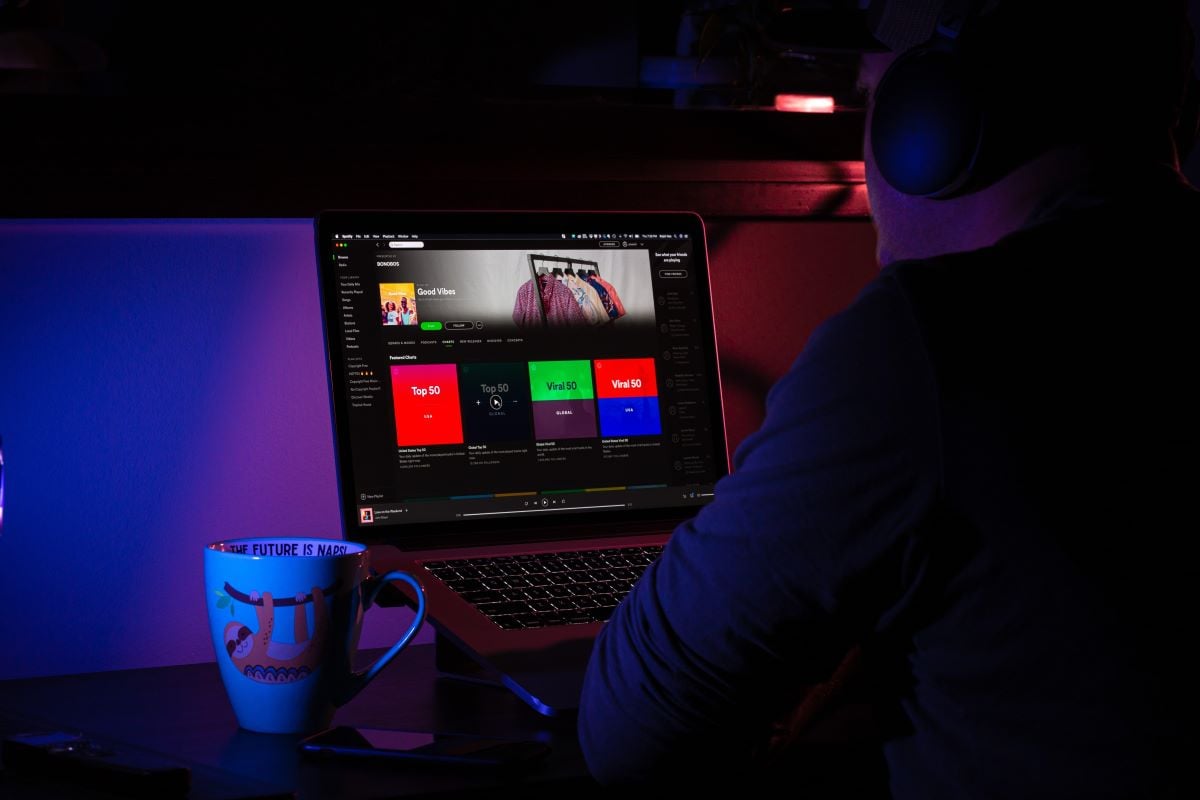
Photo: Creative Commons
Competition watchdog rules out music streaming investigation
Despite concerns from music industry stakeholders, the UK's competition watchdog has decided that a formal investigation would be unlikely to improve outcomes for listeners or creators.
The Competitions and Markets Authority (CMA) has ruled out conducting a full investigation into music streaming revenues, despite concerns among songwriters that record companies are suppressing publishing revenues in favour of the recording side of their business.
A report by the CMA found that the share of revenues going to publishers (often songwriters) increased from 8% in 2008 to approximately 12% in 2012, increasing again to 15% in 2021, while the share of revenues going to record companies in 2021 remained at a broadly similar level to what it was in 2008.
The report said that evidence seen by the CMA is inconsistent with the argument that major labels have tacitly colluded to suppress the publishing share. It also found no evidence of otherwise particularly weak competition to sign songwriters that is leading to a split in the allocation of music streaming revenues that favours recording rights over publishing rights.
READ MORE:
- Legislate fair payment from music streaming, inquiry says
- Only 720 UK artists make a living from music streaming
There remains a broader policy debate about the optimal distribution of existing revenues, the CMA report found, but it “is a matter for government and policymakers to determine whether the current split is appropriate and fair”.
The decision not to conduct a full investigation into the issue comes despite calls from MPs for the CMA to conduct one.
In July, MPs recommended that the Government should introduce “robust and legally enforceable” measures to enshrine music artists’ rights to a fairer share of streaming revenues, following a nine-month-long enquiry.
As part of “a broad yet comprehensive range of legislative reforms and regulatory interventions” to rebalance the market and protect creators from exploitation, they proposed a full CMA investigation into the dominance of major labels.
But the CMA report concluded that a concentration of power in the hands of a few major labels and popular streaming services is not hurting either listeners or creators.
Intervention risks ‘unintended consequences’
Streaming is now the primary means for both labels and artists to distribute music, the CMA report found. Data showed that three major labels, Sony, Universal and Warner, have held a combined share of over 70% of UK streams for some time.
However, the CMA ruled that “neither record labels nor streaming services are likely to be making significant excess profits that could be shared with creators”.
“Outcomes for artists are driven by factors which are largely unrelated to competition issues in the market”, the report said.
“We heard from many artists and songwriters across the UK about how they struggle to make a decent living from these services,” said Sarah Cardell, Interim Chief Executive of the CMA,
“These are understandable concerns, but our findings show that these are not the result of ineffective competition – and intervention by the CMA would not release more money into the system that would help artists or songwriters.”
The CMA report said that a competition intervention risked resulting in “unintended consequences" and worse outcomes for both consumers and creators.
“The costs, risks and uncertainty created by a market investigation (which could run for two years) would be imposed on the industry and borne, ultimately, by consumers. We have therefore decided to not undertake a market investigation,” the report states.
Revenues split ‘a matter for government’
The report also found that concerns that “the initial split between publishing and recording revenues adopted when streaming began was unfair and unjustified” are likely to be misplaced.
“The fact that publishing revenues are increasing at a greater rate compared to recording revenues, in particular for the majors, suggests that publishing revenues are not being actively suppressed because of a distortion or restriction of competition,” it said.
The report concluded that although a competition intervention would not be productive, “there remains a broader policy debate about the optimal distribution of existing revenues”.
“We think it is a matter for government and policymakers to determine whether the current split is appropriate and fair, and to explore whether wider policy interventions are required, for example those relating to the copyright framework and how music streaming licensing rates are set,” the report said.
Cardell said that “while this report marks the end of the CMA’s market study, which addresses the concerns previously posed about competition, we also hope the detailed and evidence-based picture we have been able to build of this relatively new sector will provide a basis that can be used by policymakers to consider whether additional action is needed to help creators.”
Join the Discussion
You must be logged in to post a comment.